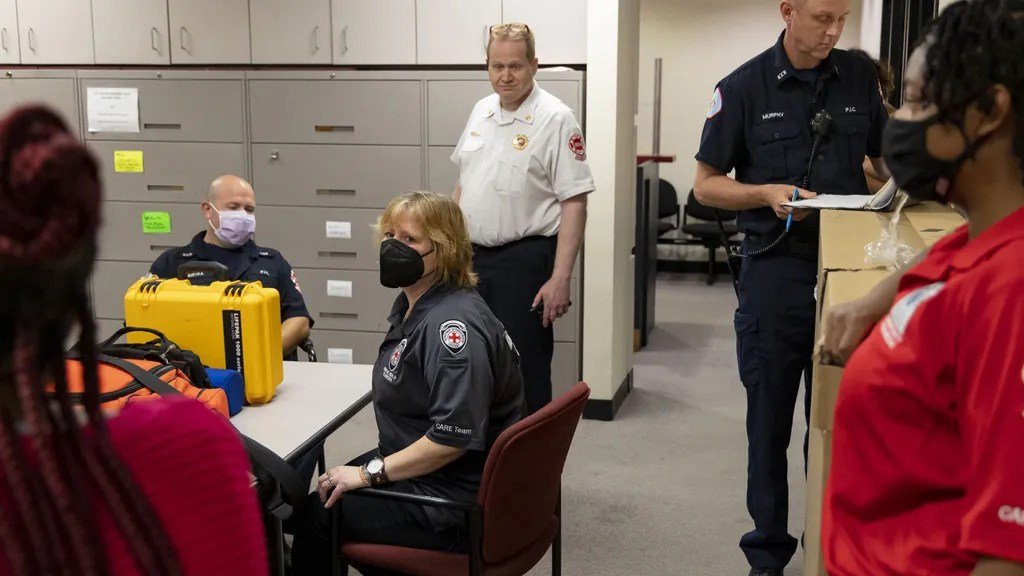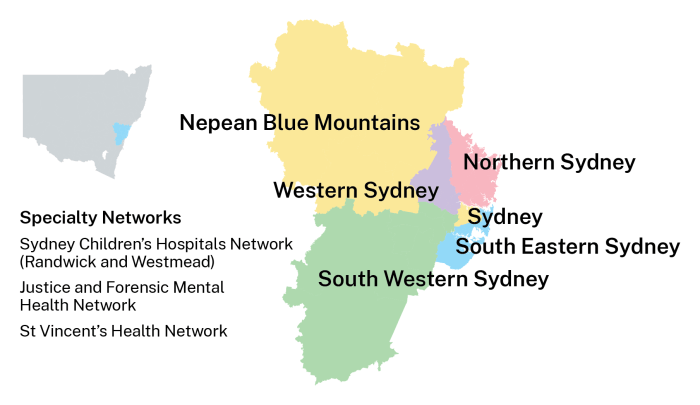Chicagoland men’s health presents a unique landscape, where socioeconomic factors, ethnicity, and access to healthcare intertwine to shape the well-being of men across the region. From navigating the complexities of the healthcare system to addressing prevalent health concerns like heart disease and mental health challenges, this guide delves into the critical aspects of men’s health in Chicagoland.
Understanding the specific challenges faced by men in Chicagoland is crucial for developing effective strategies to promote their health and well-being. This guide aims to provide men with valuable insights and resources to empower them to take charge of their health and make informed decisions about their healthcare.
Chicago’s Unique Health Landscape

Chicago, a vibrant metropolis known for its diverse population and bustling urban environment, presents a unique health landscape for men. This landscape is shaped by a complex interplay of socioeconomic factors, ethnicities, access to healthcare, and environmental influences, resulting in health outcomes that often diverge from national averages.
Socioeconomic Disparities in Men’s Health
Socioeconomic status plays a significant role in shaping the health of men in Chicagoland. Lower-income men, particularly those living in marginalized communities, face a disproportionate burden of chronic diseases, such as heart disease, diabetes, and cancer.
- Limited access to quality healthcare, including preventative screenings and early interventions, contributes to poorer health outcomes among these men.
- Unemployment, food insecurity, and exposure to environmental hazards, such as air pollution, further exacerbate health disparities.
- A lack of affordable housing and safe living environments can also negatively impact men’s health.
Ethnic Health Disparities
Ethnic disparities in health outcomes are also prevalent in Chicagoland. Men of color, including Black and Hispanic men, often experience higher rates of chronic diseases and premature mortality compared to their white counterparts.
- These disparities are rooted in systemic racism, historical injustices, and ongoing discrimination, which create barriers to healthcare access, economic opportunity, and social support.
- Cultural factors, such as language barriers and mistrust of the healthcare system, can also contribute to health disparities.
- For example, Black men in Chicago are more likely to die from prostate cancer than white men, despite having lower incidence rates. This disparity highlights the need for culturally competent healthcare services that address the unique needs of men of color.
Access to Healthcare
Access to quality healthcare is essential for improving men’s health, but significant disparities exist in Chicagoland. Men living in low-income neighborhoods often lack access to nearby healthcare facilities, particularly specialized services for chronic diseases.
- Long wait times for appointments, limited insurance coverage, and transportation challenges further hinder access to healthcare for these men.
- These disparities can lead to delayed diagnoses, inadequate treatment, and poorer health outcomes.
Environmental Factors
Environmental factors, such as air pollution, water contamination, and exposure to hazardous materials, can have a significant impact on men’s health in Chicagoland.
- Men who work in industries with high exposure to environmental hazards, such as construction and manufacturing, are at increased risk of developing respiratory diseases, cancer, and other health problems.
- Living in neighborhoods with high levels of air pollution can also contribute to poor cardiovascular health, asthma, and other respiratory conditions.
- The Chicago metropolitan area has a significant industrial presence, and men working in these industries are often exposed to hazardous materials that can have long-term health consequences.
Preventive Healthcare

Preventive healthcare plays a crucial role in maintaining men’s health and well-being throughout their lives. By adopting proactive measures and engaging in regular screenings, men can significantly reduce their risk of developing chronic diseases and improve their overall health outcomes.
Importance of Routine Screenings and Vaccinations
Routine screenings and vaccinations are essential components of preventive healthcare for men. These measures help identify health issues early on, when they are often easier to treat and manage.
Recommended Screenings and Vaccinations
The following table Artikels recommended screenings and vaccinations for men based on age:| Age Group | Screenings | Vaccinations ||—|—|—|| 18-39 | Blood pressure, cholesterol, STI testing, testicular self-exams | Tetanus, diphtheria, pertussis (Tdap), HPV, measles, mumps, rubella (MMR), influenza || 40-49 | Prostate cancer screening, colorectal cancer screening | Tdap, HPV, influenza, shingles || 50+ | Prostate cancer screening, colorectal cancer screening, bone density scan | Tdap, influenza, shingles, pneumococcal |
Lifestyle Modifications
Lifestyle modifications play a significant role in preventing chronic diseases among men. These changes can include:
- Maintaining a healthy weight
- Engaging in regular physical activity
- Adopting a balanced diet
- Avoiding smoking and excessive alcohol consumption
- Managing stress
Common Health Concerns: Chicagoland Men’s Health

Men in Chicagoland, like men across the nation, face a unique set of health challenges. Understanding these concerns and taking proactive steps to address them is crucial for a healthy and fulfilling life.
Heart Disease
Heart disease is a leading cause of death for men in the United States, and Chicagoland is no exception. The prevalence of heart disease in the region is influenced by a combination of factors, including lifestyle choices, genetics, and access to healthcare.
Factors Contributing to Heart Disease
- Unhealthy Diet:A diet high in saturated and trans fats, cholesterol, and sodium can contribute to the development of heart disease. Many Chicagoland residents consume fast food and processed foods frequently, which are often high in these unhealthy ingredients.
- Lack of Physical Activity:Sedentary lifestyles and limited access to safe and affordable exercise opportunities can lead to an increased risk of heart disease. The urban environment in Chicagoland can make it challenging for some men to engage in regular physical activity.
- Smoking:Smoking is a major risk factor for heart disease. The prevalence of smoking in Chicagoland is higher than the national average, contributing to the high incidence of heart disease.
- Stress:Chronic stress can negatively impact cardiovascular health. The fast-paced lifestyle and economic pressures in Chicagoland can contribute to high stress levels among men.
- Genetics:Family history of heart disease can increase an individual’s risk.
Managing and Preventing Heart Disease
- Adopt a Heart-Healthy Diet:Choose lean meats, fruits, vegetables, and whole grains. Limit saturated and trans fats, cholesterol, and sodium intake.
- Engage in Regular Physical Activity:Aim for at least 30 minutes of moderate-intensity exercise most days of the week.
- Quit Smoking:Smoking cessation programs and support groups can help men quit smoking and reduce their risk of heart disease.
- Manage Stress:Engage in stress-reducing activities such as yoga, meditation, or spending time in nature.
- Get Regular Checkups:Regular checkups with a healthcare provider can help detect early signs of heart disease and allow for timely interventions.
Cancer
Cancer is another significant health concern for men in Chicagoland. The region’s high population density and industrial history contribute to the prevalence of certain types of cancer.
Factors Contributing to Cancer
- Environmental Exposure:Exposure to environmental toxins, such as air pollution and industrial chemicals, can increase the risk of certain types of cancer. Chicagoland’s industrial history and urban environment have resulted in higher levels of environmental toxins.
- Lifestyle Factors:Smoking, excessive alcohol consumption, and unhealthy diets are all linked to an increased risk of cancer. These factors are prevalent in Chicagoland, contributing to the high incidence of the disease.
- Genetics:Family history of cancer can increase an individual’s risk.
Managing and Preventing Cancer
- Adopt a Healthy Lifestyle:Engage in regular physical activity, eat a balanced diet, and avoid smoking and excessive alcohol consumption.
- Get Regular Cancer Screenings:Regular screenings, such as prostate cancer screening for men over 50, can detect early signs of cancer and increase the chances of successful treatment.
- Limit Exposure to Environmental Toxins:Avoid smoking, limit exposure to air pollution, and be aware of potential workplace hazards.
Mental Health Issues
Mental health issues, such as depression, anxiety, and substance abuse, are increasingly prevalent among men in Chicagoland. The fast-paced lifestyle, economic pressures, and social isolation can contribute to these challenges.
Factors Contributing to Mental Health Issues
- Social Isolation:Men are often socialized to be stoic and independent, which can lead to social isolation and difficulty seeking help.
- Economic Stress:The high cost of living and economic insecurity in Chicagoland can contribute to stress and anxiety.
- Work-Life Balance:The demanding work culture in Chicagoland can lead to work-life imbalance and burnout, contributing to mental health issues.
Managing and Preventing Mental Health Issues
- Seek Professional Help:Don’t hesitate to reach out to a therapist or counselor if you are struggling with mental health issues.
- Connect with Others:Build strong social connections and engage in activities that promote social interaction.
- Practice Self-Care:Engage in activities that promote relaxation and well-being, such as exercise, meditation, or spending time in nature.
- Develop Healthy Coping Mechanisms:Learn healthy ways to manage stress and cope with difficult emotions.
Common Health Conditions and Potential Causes
| Health Condition | Potential Causes |
|---|---|
| Heart Disease | Unhealthy diet, lack of physical activity, smoking, stress, genetics |
| Cancer | Environmental exposure, lifestyle factors (smoking, alcohol consumption, diet), genetics |
| Mental Health Issues (depression, anxiety, substance abuse) | Social isolation, economic stress, work-life imbalance |
Mental Health and Well-being

Mental health is an essential aspect of overall well-being, and men in Chicagoland are not immune to the challenges that can arise. Unfortunately, societal expectations and traditional notions of masculinity often create a stigma surrounding mental health, leading many men to avoid seeking help when they need it.
This can have serious consequences for their mental and physical health.
Common Mental Health Challenges Faced by Men in Chicagoland
Men in Chicagoland, like men across the country, face a variety of mental health challenges. These challenges can stem from a multitude of factors, including work stress, relationship difficulties, financial strain, and societal pressures. Some of the most common mental health concerns among men in the region include:
- Depression:Depression is a mood disorder that can cause feelings of sadness, hopelessness, and loss of interest in activities that were once enjoyable. It can significantly impact a person’s ability to work, study, and maintain relationships.
- Anxiety:Anxiety disorders are characterized by excessive worry and fear, often accompanied by physical symptoms such as rapid heartbeat, sweating, and difficulty breathing. Common types of anxiety disorders include generalized anxiety disorder, panic disorder, and social anxiety disorder.
- Substance Abuse:Substance abuse, including alcohol and drug use, can be a way for men to cope with stress, anxiety, or depression. However, it can lead to serious health problems and addiction.
- Suicide:Sadly, suicide is a significant public health concern, and men are at a higher risk than women. The stigma surrounding mental health often prevents men from seeking help, making it crucial to address this issue openly and provide support.
Mental Health Resources and Support Services in Chicagoland, Chicagoland men’s health
Fortunately, there are a number of resources and support services available to men in Chicagoland who are struggling with their mental health. These resources can provide information, counseling, and support groups to help men navigate these challenges.
Chicagoland men’s health is a vital topic, with many resources available to support their well-being. While the region offers numerous options, it’s interesting to compare the approach to healthcare in other parts of the country, such as Florida. For example, The Villages, a large retirement community in Florida, has its own unique healthcare system, the villages health florida , which caters specifically to the needs of its residents.
While the focus in Chicagoland might be on urban healthcare challenges, The Villages highlights the importance of a community-based approach, offering insights that could potentially benefit Chicagoland men’s health initiatives.
- The National Alliance on Mental Illness (NAMI):NAMI is a national organization that provides support and advocacy for individuals and families affected by mental illness. They offer support groups, educational programs, and other resources.
- The American Foundation for Suicide Prevention (AFSP):AFSP is a non-profit organization dedicated to preventing suicide. They offer resources for individuals at risk of suicide, as well as their loved ones.
- Mental Health America (MHA):MHA is a national mental health advocacy organization that provides information, resources, and support to individuals and families struggling with mental health issues. They offer online resources, support groups, and a helpline.
- The Substance Abuse and Mental Health Services Administration (SAMHSA):SAMHSA is a federal agency that provides information and resources on mental health and substance abuse. They offer a national helpline, as well as online resources and support groups.
- Local Mental Health Clinics:Chicagoland has a number of mental health clinics that provide counseling and support services to individuals struggling with mental health issues. These clinics often offer sliding-scale fees to make services accessible to individuals with limited financial resources.
Strategies to Improve Mental Well-being
Men can take proactive steps to improve their mental well-being and build resilience. These strategies can help manage stress, promote emotional health, and build healthy coping mechanisms.
- Exercise Regularly:Physical activity releases endorphins, which have mood-boosting effects. Aim for at least 30 minutes of moderate-intensity exercise most days of the week.
- Practice Mindfulness and Meditation:Mindfulness and meditation techniques can help reduce stress, improve focus, and promote emotional regulation.
- Connect with Others:Social connections are essential for mental well-being. Make time for meaningful interactions with friends, family, or support groups.
- Seek Professional Help:If you are struggling with your mental health, don’t hesitate to seek professional help. A therapist can provide guidance, support, and tools to help you manage your challenges.
- Engage in Hobbies and Interests:Pursuing hobbies and interests can provide a sense of purpose, enjoyment, and relaxation. This can be a great way to reduce stress and boost mood.
Healthy Living in Chicagoland

Living a healthy lifestyle is crucial for men’s well-being, and Chicagoland offers a wealth of resources and opportunities to support this endeavor. This section explores how physical activity, a balanced diet, and community initiatives contribute to men’s health in the region.
Physical Activity and Exercise
Regular physical activity is essential for maintaining a healthy weight, reducing the risk of chronic diseases, and improving overall well-being. It can also boost mood, increase energy levels, and enhance sleep quality. Here are some specific activities and resources available in Chicagoland for men to engage in physical activity:
- Join a gym or fitness center:Chicagoland has numerous gyms and fitness centers offering a wide range of fitness classes, equipment, and personal training services.
- Participate in group fitness classes:Group fitness classes like spin, yoga, and boot camps can provide a fun and motivating environment for exercise.
- Take advantage of outdoor recreation:Chicago’s parks and lakefront offer ample opportunities for outdoor activities like running, biking, hiking, and swimming.
- Join a sports league or team:Playing sports can be a great way to stay active, have fun, and socialize.
- Utilize local resources:Many community centers, YMCA branches, and parks offer free or low-cost fitness programs for men.
Balanced Diet
A balanced diet plays a crucial role in maintaining optimal health. It provides the body with the necessary nutrients to function properly and reduces the risk of chronic diseases like heart disease, stroke, and type 2 diabetes. Here are some tips for creating a healthy meal plan for men:
- Focus on fruits, vegetables, and whole grains:These foods are rich in vitamins, minerals, and fiber, which are essential for overall health.
- Choose lean protein sources:Lean protein sources like chicken, fish, beans, and tofu provide essential amino acids for muscle growth and repair.
- Limit processed foods, sugary drinks, and unhealthy fats:These foods can contribute to weight gain, inflammation, and chronic diseases.
- Stay hydrated:Drink plenty of water throughout the day to maintain proper hydration and support bodily functions.
- Consider consulting a registered dietitian:A registered dietitian can provide personalized dietary advice based on individual needs and goals.
Community Initiatives and Programs
Chicagoland is home to numerous community initiatives and programs that support men’s health. These programs provide access to health screenings, education, support groups, and other resources.Here are some examples:
- The Men’s Health Network:This national organization offers resources and information on a wide range of men’s health topics.
- The YMCA of Metropolitan Chicago:The YMCA offers various programs and services for men, including fitness classes, health screenings, and support groups.
- The American Heart Association:The AHA provides resources and support for men at risk for heart disease.
- The American Cancer Society:The ACS offers information and support for men diagnosed with cancer.
- Local community health centers:Many community health centers provide affordable healthcare services, including health screenings and preventive care.
Navigating the Healthcare System

The healthcare system in Chicagoland, like any other, can be complex and overwhelming, especially for men who may not be accustomed to seeking medical attention regularly. Understanding how to navigate this system effectively is crucial for ensuring you receive the best possible care.
Finding and Accessing Quality Healthcare Providers
Finding a healthcare provider you trust and feel comfortable with is essential. Start by asking for recommendations from friends, family, or colleagues. You can also utilize online resources like the Illinois Department of Public Health website or the American Medical Association’s physician finder.
Once you’ve identified potential providers, consider factors like their location, specialty, and whether they accept your insurance. It’s also a good idea to schedule a brief introductory appointment to get a feel for their approach and communication style.
Understanding Insurance Coverage and Navigating Healthcare Costs
Navigating healthcare costs and insurance coverage can be challenging. Understanding your insurance plan’s benefits and limitations is crucial for managing expenses. Familiarize yourself with your deductible, co-pays, and out-of-pocket maximums. It’s also important to be aware of the various healthcare options available in Chicagoland, such as:* Primary Care Physicians (PCPs):Your primary point of contact for routine checkups, preventive care, and managing chronic conditions.
Specialists
Men’s health in Chicagoland is a multifaceted issue, encompassing a wide range of concerns. From prostate health to mental well-being, there are numerous resources available to support men in the region. For those seeking advanced cancer care, the atrium health levine cancer institute is a leading provider of comprehensive treatment and support services.
This institute serves as a valuable resource for men in Chicagoland facing cancer diagnoses, offering cutting-edge therapies and personalized care plans.
Doctors who focus on specific areas of medicine, such as cardiology, dermatology, or oncology.
Urgent Care Centers
Chicagoland men are increasingly prioritizing their health, and with good reason. Maintaining good health is essential for a fulfilling life, and access to quality healthcare is crucial. Thankfully, options like dtc family health offer convenient and accessible solutions for families in the Chicago area, empowering individuals to take control of their well-being and proactively manage their health journey.
Offer non-emergency medical care for illnesses and injuries that require immediate attention but aren’t life-threatening.
Emergency Rooms
For life-threatening emergencies or severe injuries requiring immediate medical attention.
Remember to always ask your provider about the costs associated with procedures and treatments before proceeding.
Key Steps for Seeking Healthcare in Chicagoland
| Step | Action |
|---|---|
| 1 | Identify your healthcare needs. Determine if you require a PCP, specialist, or urgent care. |
| 2 | Research and select a healthcare provider based on your needs and insurance coverage. |
| 3 | Schedule an appointment and gather relevant medical history and insurance information. |
| 4 | Communicate openly and honestly with your provider about your concerns and medical history. |
| 5 | Ask questions and clarify any doubts about treatment options, costs, and next steps. |
| 6 | Follow your provider’s instructions and schedule follow-up appointments as needed. |
Communicating Effectively with Healthcare Providers
Open and honest communication is crucial for receiving effective care. Here are some tips for men to communicate effectively with their healthcare providers:* Be prepared:Before your appointment, write down your concerns, symptoms, and any questions you have.
Be specific
Describe your symptoms clearly and provide details about their onset, duration, and any other relevant information.
Don’t hesitate to ask questions
If you don’t understand something, ask for clarification.
Listen attentively
Pay attention to your provider’s explanations and instructions.
Be honest about your lifestyle
Share information about your diet, exercise habits, and any other relevant factors that could impact your health.
Closure

By addressing the unique health landscape of Chicagoland men, promoting preventive healthcare practices, and fostering a culture of mental well-being, we can work together to improve the health outcomes of men in the region. This guide serves as a starting point for men to engage in their health journey and access the resources they need to live healthier and more fulfilling lives.
Helpful Answers
What are some common health concerns for men in Chicagoland?
Heart disease, cancer, mental health issues, and diabetes are among the most prevalent health concerns for men in Chicagoland.
How can I find a good healthcare provider in Chicagoland?
You can start by asking for recommendations from friends, family, or colleagues. You can also search online for providers specializing in your specific health needs. Many healthcare organizations offer online directories of providers.
What are some resources available for men’s mental health in Chicagoland?
There are numerous resources available for men’s mental health in Chicagoland, including mental health clinics, support groups, and online platforms. You can also contact your primary care provider for referrals.